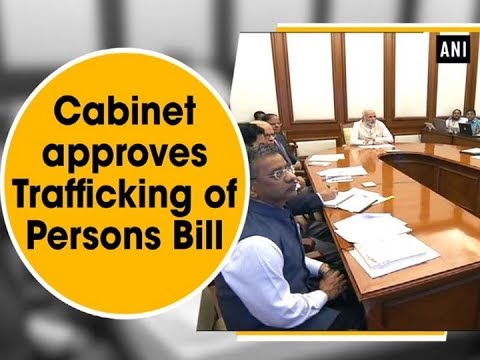Context:
-
Lok Sabha has passed the Trafficking of Persons (Prevention, Protection and Rehabilitation) Bill, 2018.
-
Human Trafficking is third largest organized crime violating basic human rights.
-
At present there is no specific law to deal with this crime.
-
It will make India leader among South Asian countries to combat trafficking
-
The Bill provides for the prevention, rescue, and rehabilitation of trafficked persons and seeks to establish National Anti-Trafficking Bureau to investigate trafficking cases.
-
It also provides for the setting up of Anti-Trafficking Units (ATUs) at district level which will deal with the investigation, prevention, rescue, and protection of victims and witnesses.

Features of Bill
- It takes into consideration aggravated forms of trafficking. It includes trafficking for purpose of forced labour, begging, trafficking of a woman or child for the purpose of marriage or under the pretext of marriage or after marriage, trafficking by administering chemical substance or hormones on a person for the purpose of early sexual maturity etc
- It prescribes punishment for promoting and facilitating trafficking of person. It includes producing, printing, issuing or distributing unissued, tampered or fake certificates, registration or stickers as proof of compliance with Government requirements, or commits fraud for procuring or facilitating acquisition of clearances and necessary documents from Government agencies.
- It deals with confidentiality of victims and witnesses and complainants by not disclosing their identity. It will be maintained by recording their statement through video conferencing (it will help trans-border and inter-State crimes).
- It has provision for time bound trial and repatriation of the victims. It will be within a period of 1 year from taking into cognizance. It provides immediate protection of rescued victims and their rehabilitation. The victims will be entitled to interim relief immediately within 30 days to address their physical, mental trauma etc. and further appropriate relief within 60 days from the date of filing of charge sheet.
- It creates Rehabilitation Fund for the first time. It will be used for physical, psychological and social well-being of victim including education, skill development, health care and psychological support, legal aid, safe accommodation etc. It mandates designation of courts in each district for the speedy trial of the cases.
- It creates dedicated institutional mechanisms at District, State and Central level. They will be responsible for prevention, protection, investigation and rehabilitation work related to trafficking. The tasks of Anti-Trafficking Bureau at the national level will be performed by National Investigation Agency (NIA).
- The punishment prescribed under it ranges from rigorous minimum 10 years to life and fine not less than Rs. 1 lakh. In order to break the organized nexus, both at national and international level, it mandates for attachment & forfeiture of property and also proceeds for crime.
- It comprehensively addresses transnational nature of the crime. It entrusts National Anti-Trafficking Bureau (NATB) to perform functions of international coordination with authorities in foreign countries and international organizations.
- State Anti-Trafficking Officers: The Bill mandates state government to appoint State Nodal Officer. The officer will be responsible for follow up action as per provisions of Bill and as per instructions of State Anti-Trafficking Committee and provide relief and rehabilitation services. It also mandates state government to appoint Police Nodal Officer at state and district levels. The state government will also designate Anti-Trafficking Police Officers for each district to deal with all matters related to trafficking in the district.
- Anti-Trafficking Units: The Bill provides setting up of Anti-Trafficking Units (ATUs) at district level. They will deal with prevention, rescue and protection of victims and witnesses and for investigation and prosecution of trafficking offences. In districts where ATU is not functional, this responsibility will be taken up by local police station.
- Anti-Trafficking Relief and Rehabilitation Committee: The Bill provides for establishment of these committees (ATCs) at all three levels viz. national, state, and district levels. These committees will be responsible for providing compensation, repatriation and re-integration of victims in society, among others.
- Search and rescue: The Bill empowers Anti-Trafficking Police Officer or ATU to rescue persons, if they are in imminent danger. They will be produced before Child Welfare Committee or Magistrate for medical examination. The district ATC will provide relief and rehabilitation services to rescued persons.
- Penalties: The Bill specifies penalties for various offences including for promoting trafficking, trafficking of persons, disclosing identity of victim and aggravated trafficking such as trafficking for bonded labour and begging. For trafficking it prescribes rigorous imprisonment of 10 years up to life imprisonment, along with minimum fine of Rs. 1 lakh. For publishing of any material it prescribes imprisonment between 5 to 10 years, and fine between Rs 50,000 to Rs.1 lakh.